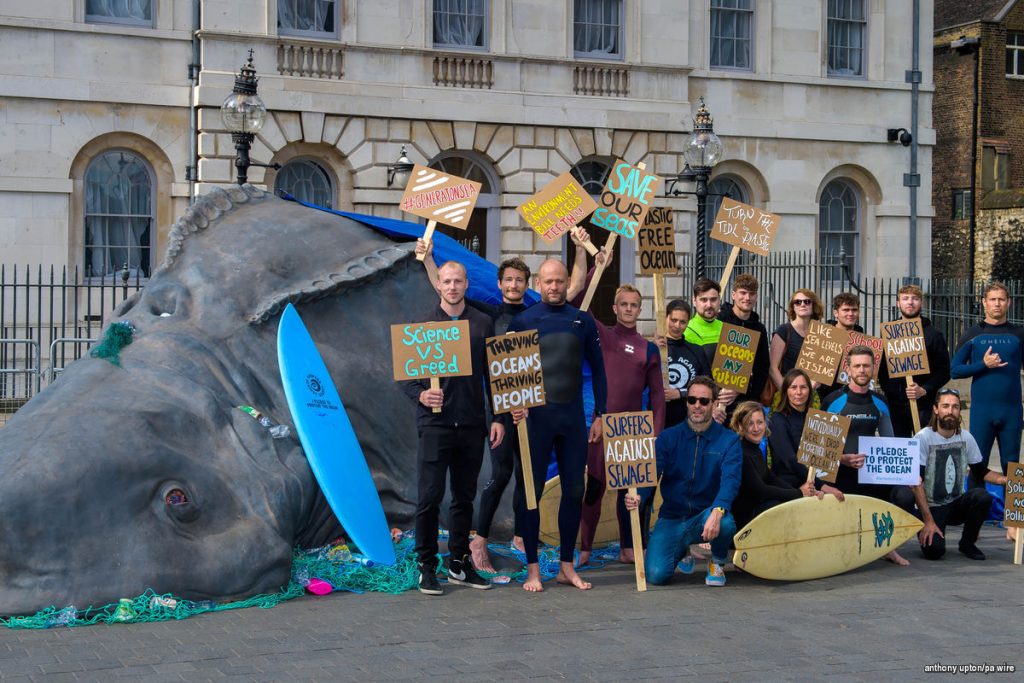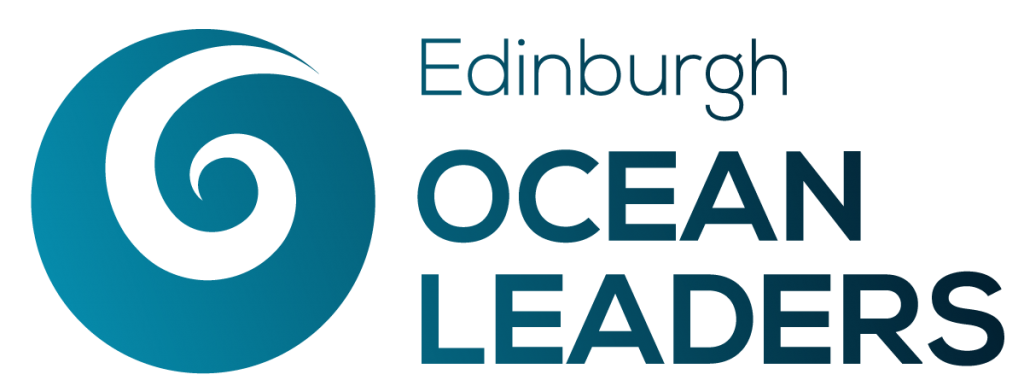Edinburgh Ocean Leader Hugo Tagholm is the Chief Executive of the UK marine conservation and campaigning charity Surfers Against Sewage (SAS). In the 30 years since being established, SAS has become one of the most recognised voices for marine conservation in the UK, with a mission that extends far beyond fighting sewage pollution. In this post from Hugo, he gives his take on threats to the UK marine environment and tells us about SAS’s work to tackle these threats to protect and restore UK seas.
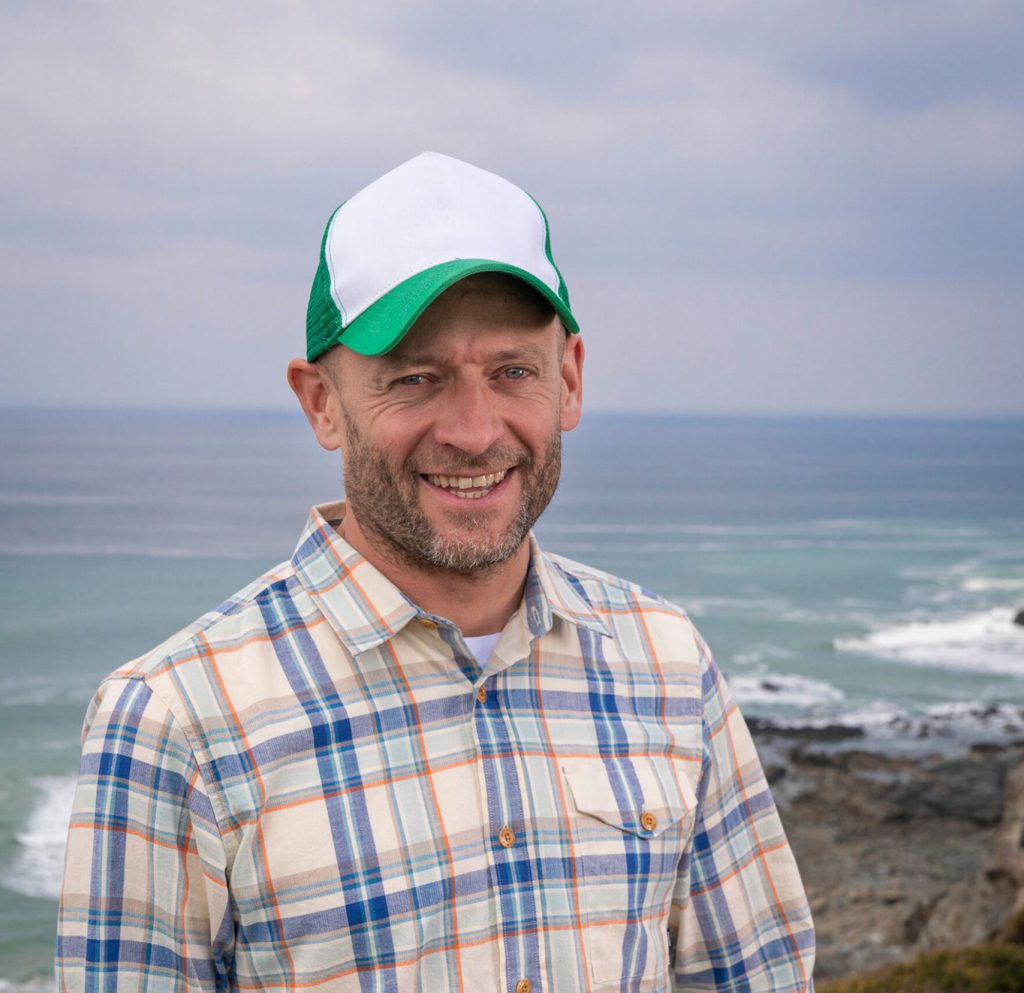
Surfers Against Sewage celebrated its 30th anniversary this year, having been founded in 1990 by a small group of surfers in Cornwall who were literally sick of getting sick from the time they spent in the water riding waves. In the early 1990’s untreated sewage was discharged almost continuously around the coastline of the UK, polluting the unique beaches, surf spots and coastline from the tip of Scotland to the wild west of Land’s End. At the time, the UK was referred to as ‘The Dirty Man of Europe’, a reference to its woeful pollution record and its treatment of the environment. Surfers, swimmers and beach lovers were on the front line of this pollution and took to our beaches and streets to campaign, taking sandy footprints to Westminster for the very first time to call for change to protect the ocean from sewage pollution and the health of all ‘ocean citizens’.
Powerful new European legislation also came into force in the early 1990s, holding the UK’s newly privatised water companies to account and driving a huge wave of investment to clean up the coastline. Campaigns by Surfers Against Sewage helped accelerate action and investment, and ensure that the water industry remained under public and political scrutiny and pressure to deliver a cleaner coastline. A remarkable decade of action delivered a dramatic step-change in beach water quality at hundreds of beaches, protecting water users but also the unique marine ecosystems around the country. One of the first victories for the youthful SAS.
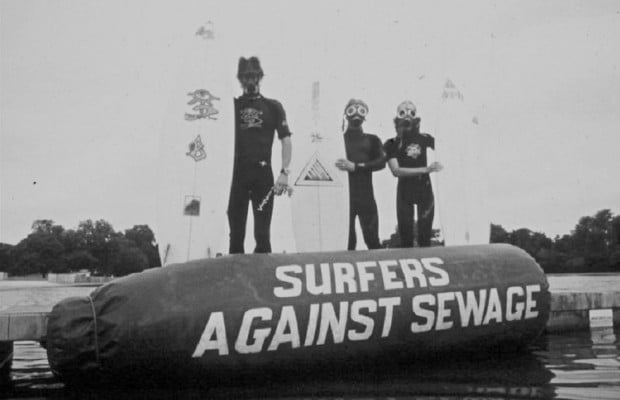
Fast forward thirty years and lots has changed at SAS and in the environment around us. The charity has evolved into one of the UK’s best recognised marine conservation organisations working on much more than just water quality. Not just surfers, not just sewage, as we sometimes say. We’ve taken on new issues from the plastic pandemic to global heating, and now represent almost half a million supporters. Our mission is simple, to create ocean activists everywhere. Our vision is clear – thriving oceans and thriving people. We empower and connect individuals to call for change in the systems around to protect and restore our seas.
The work we do has always been driven by human connections with the ocean. Our supporters are considered a ‘canary in the coalmine’ of the issues we work on, from water quality to plastic pollution. They have such a close relationship with the sea that we often consider them to be ‘marine indicator species’, and some of our campaigns and studies would certainly attest to this, not least the Beach Bums survey that we collaborated on with the European Centre for the Environment & Human Health to explore antimicrobial resistant bacteria in water users. Surfers and water users are increasingly being exposed to antibiotic resistant bacteria – one of the world’s biggest emerging health threats.
We’ve been heavily focused on plastic pollution over the last few years, building one of Europe’s biggest community movements on the issue comprising of 100,000 beach clean volunteers, 700 Plastic Free Communities and 1 million students in our Plastic Free Schools programme. This movement has already helped change government policy and legislation on plastic pollution and continues to be a huge force for good in changing the ‘plastic system’ around us that currently our seas with this almost indestructible and insidious pollutant.
The spectre of water pollution has also sadly returned and is now back at the top of the environmental agenda once again. Sewage and agricultural pollution are wreaking havoc on our rivers. Just 16% of our rivers met Good Ecological Status in 2019, showing just how polluted the blue arteries of our country have become. These vital ecosystems were polluted by sewage pollution over 200,000 times in 2019, equating to over 1.5 million hours of untreated effluent discharged.
Recent years have seen an explosion in recreational activities on our rivers from stand-up paddle boarding to open water swimming; new cohorts of water lovers that didn’t exist when SAS started. This year, the importance of the natural environment to both physical and mental health has been brought to forefront of public attention. Yet recent reports by the European Centre for Environment &Human Health indicate that we are just as likely to get sick from poor water quality as we were in the 1990’s.
Sadly, the coastline is facing the ongoing challenge of sewage pollution from the network of combined sewer overflows which the water industry operates to alleviate pressure on their sewage works. Our recent Water Quality Report highlighted almost 3,000 raw sewage pollution incidents at Bathing Waters in England and Wales from licensed Combined Sewer Overflows from 1st October 2019 to 30th September 2020, impacting some of the most popular beaches in the country. The UK missed its 2020 target for UK seas to meet Good Environmental Status, failing 11 out of 15 indicators of good marine health.
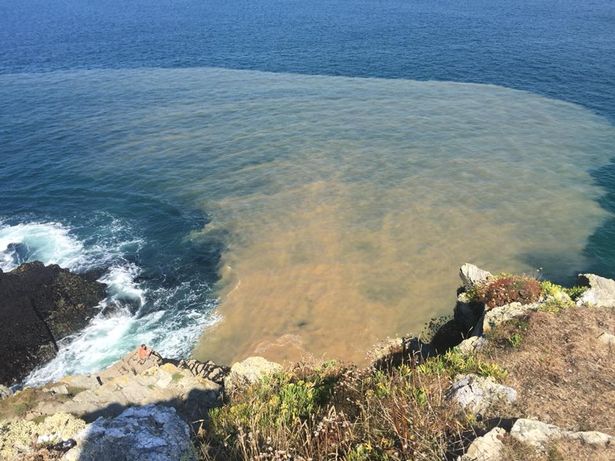
We track sewage pollution events and issue live water quality updates through the Safer Seas Service, and app which covers over 350 beaches nationwide providing the real-time data to water users to help them avoid potentially dangerous sewage pollution and other diffuse pollution events at the beaches they use most. We shouldn’t really have to do this, but this vital public health information can not only protect water users but help us hold the water industry to account. Let’s not forget that England’s privatised water firms have paid out £57 billion in dividends since SAS started, some of which could have been redirected to protecting the health of our blue environment.
Water companies seem to consistently put profit before fully protecting the environment. Our report demonstrates that rivers and oceans are being treated like open sewers as combined sewer overflows are used as a routine method for disposing of sewage, instead of in the exceptional circumstances under which it is permitted. Even worse, some – like Southern Water – are not even notifying the public when they do this so people cannot make informed decisions about their own health. This feels particularly horrifying in a year where we are all battling the COVID-19 pandemic, a virus that is being tracked through sewage works.
This year we convened a cross-sectorial coalition, involving leading eNGOs, sports’ national governing bodies and other key stakeholders to engage the public on the issue through the #EndSewagePollution petition. The petition represents tens of thousands of voices and cross sector organisations backed by millions including the Rivers Trust, Outdoor Swimming Society, British Canoeing and the Wildlife & Countryside Link. We were delighted to deliver the petition, almost 50,000 voices, to the Secretary of State for the Environment, George Eustice MP, and have the chance to discuss the issue with him.
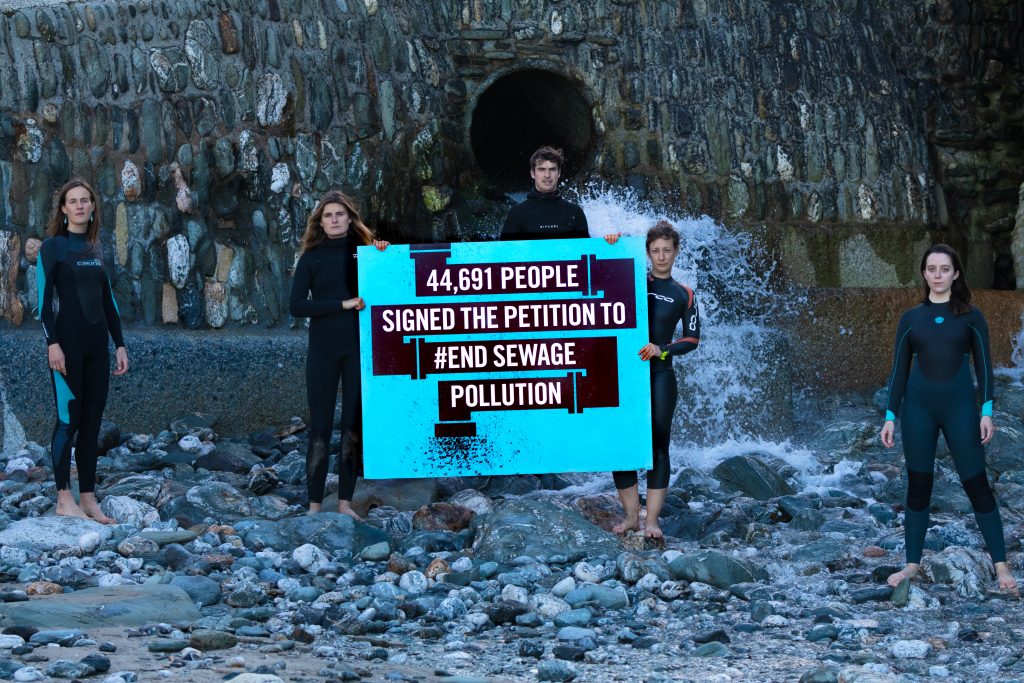
We are calling for:
- An enhanced water-quality testing regime providing a true picture of the UK’s water quality, testing for emerging viruses and antimicrobial resistant bacteria as well as accurate real-time water quality information available all-year round for all UK inland and coastal Bathing Waters
- World-leading water quality legislation with an Environment Bill that exceeds EU water quality standards as well as sewage legislation setting ambitious and legally binding targets to end untreated sewage discharge in all Bathing Waters by 2030. We also need legislation that holds the same standards for both inland and coastal waters
- Nature-based solutions to sewage pollution with increased investment and associated targets for the restoration of natural habitats to reduce pressure on the water systems and help prevent sewer overflows, whilst increasing biodiversity and tackling climate change
- Investment from water companies in sewerage infrastructure to eventually end the use of emergency sewage overflows
The good news is that our collective voice is starting to be heard. The chair of the Environmental Audit Committee Philip Dunne MP has proposed The Sewage (Inland Waters) Bill. This Bill seeks to provide a much needed and essential framework for water industry reform to end sewage pollution, restore England’s rivers and protect water users. We’ve been supporting the drafting of the Bill along with other members of the #EndSewagePollution coalition. Now we need MP’s to pipe up and vote for it when it goes for its 2rd reading in the House of Commons on 15th January 2021. You can join the campaign and demand your MP vote for the Bill by sending them an email today.

